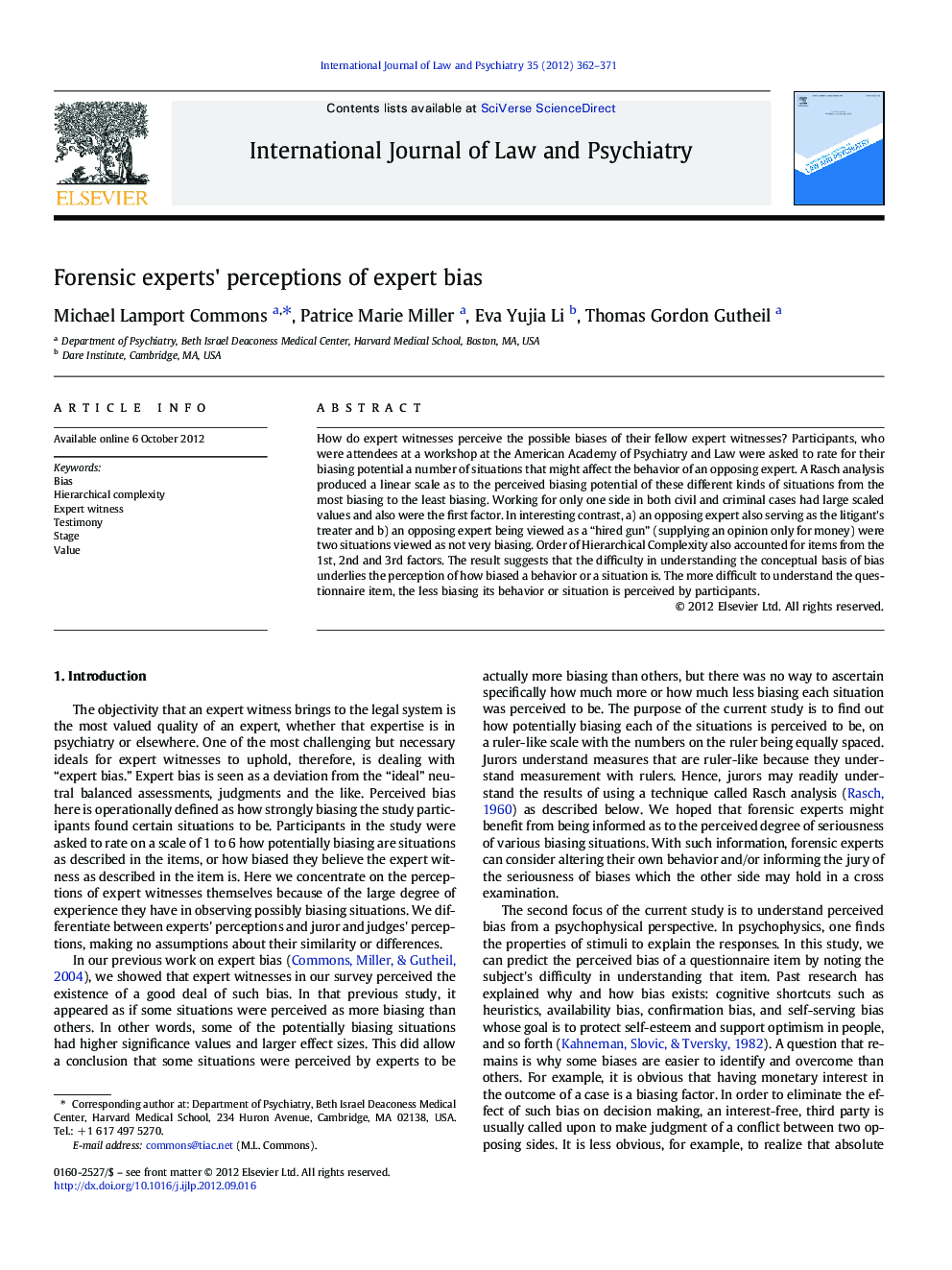| Article ID | Journal | Published Year | Pages | File Type |
|---|---|---|---|---|
| 100933 | International Journal of Law and Psychiatry | 2012 | 10 Pages |
How do expert witnesses perceive the possible biases of their fellow expert witnesses? Participants, who were attendees at a workshop at the American Academy of Psychiatry and Law were asked to rate for their biasing potential a number of situations that might affect the behavior of an opposing expert. A Rasch analysis produced a linear scale as to the perceived biasing potential of these different kinds of situations from the most biasing to the least biasing. Working for only one side in both civil and criminal cases had large scaled values and also were the first factor. In interesting contrast, a) an opposing expert also serving as the litigant's treater and b) an opposing expert being viewed as a “hired gun” (supplying an opinion only for money) were two situations viewed as not very biasing. Order of Hierarchical Complexity also accounted for items from the 1st, 2nd and 3rd factors. The result suggests that the difficulty in understanding the conceptual basis of bias underlies the perception of how biased a behavior or a situation is. The more difficult to understand the questionnaire item, the less biasing its behavior or situation is perceived by participants.
